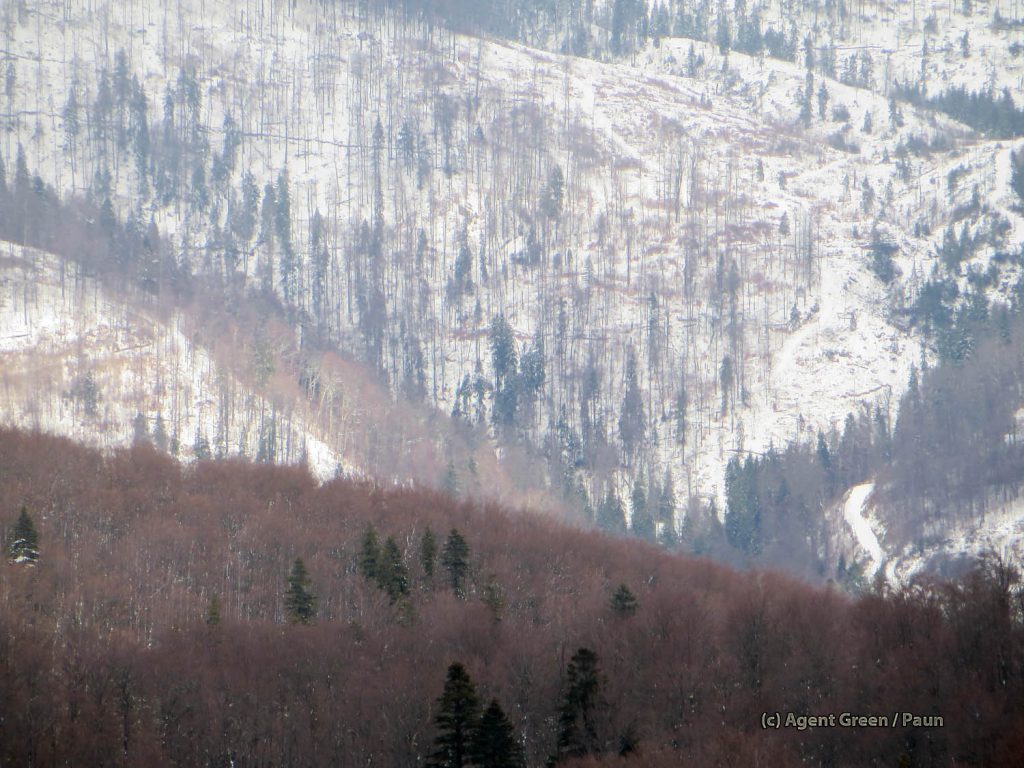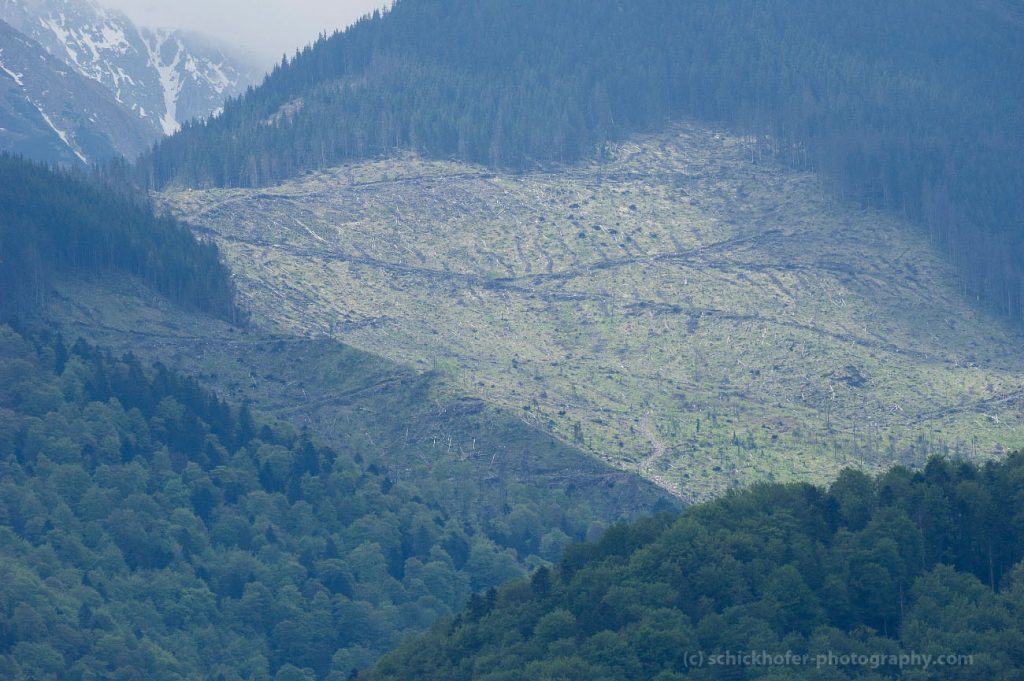Press release, 23 February 2016
Radolfzell. “Right now, our continent’s last primeval forests are being cut down in Romania and nobody is intervening”, warns Gabriel Schwaderer, Executive Director of international nature conservation foundation EuroNatur. Many of the European Union’s last old-growth beach forests that survived until now, are growing in Romania. But week after week thousands of these trees are being cut down, both legally and illegally, and exported or sold to large timber companies. At this moment, the Romanian environmental NGO Agent Green reports deforestations in the Ţarcu Mountains. Despite being a protected area and part of the European Network of nature conservation sites Natura 2000, entire mountainsides have already been denuded of trees. The remnant forests are to be cut down in the coming weeks.
EuroNatur calls on both the European Commission and the Government of Romania to intervene against this destruction of European natural heritage. “Old-growth beech forests are an outstanding part of our European natural heritage. It is our duty to preserve the last remnants both for future generations and as habitats for bears, wolves and lynxes”, says Gabriel Schwaderer. Europe’s last large-scale primeval beech forests grow in the Carpathian Mountains of Ukraine, Slovakia, and Romania. In November 2015, 30 renowned experts from 12 European countries, including Germany, Austria, Ukraine, Italy, and Romania, gathered on the Isle of Vilm and agreed on a resolution on European Beech Forests. The resolution calls on governments to effectively protect old-growth European beech forest ecosystems. In particular, the Beech Forest Network calls for a general logging moratorium in these areas.
Background information:
- Beech forest have been especially characterizing for European landscapes. The European beech is growing from lowland and montane areas of western and central Europe up to the tree limit area in southern and south-eastern Europe.
- The transnational serial UNESCO World Heritage property “Primeval Beech Forests of the Carpathians and Ancient Beech Forests of Germany” comprises 15 component parts in Germany, Slovakia and Ukraine amounting to 33,761 hectares. Link to the “Vilm resolution” of the Beech Forest Network of Europe of 19 November 2015.



